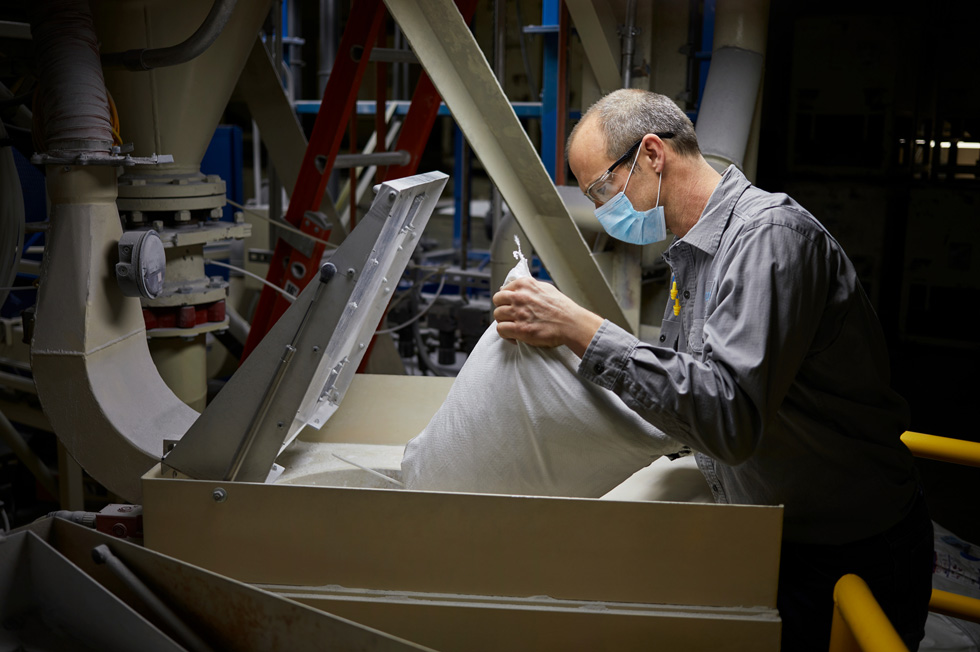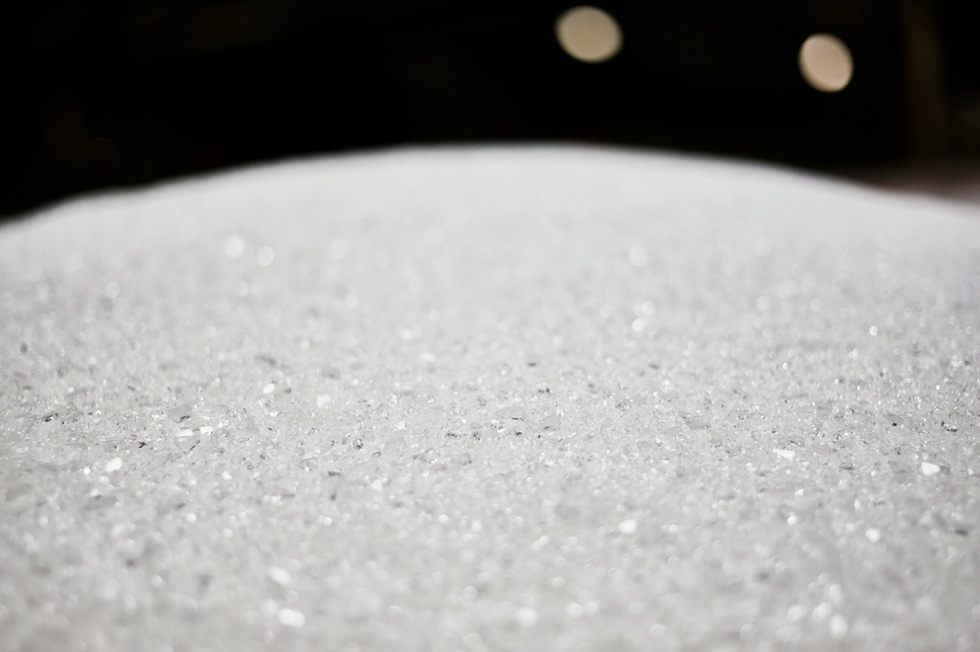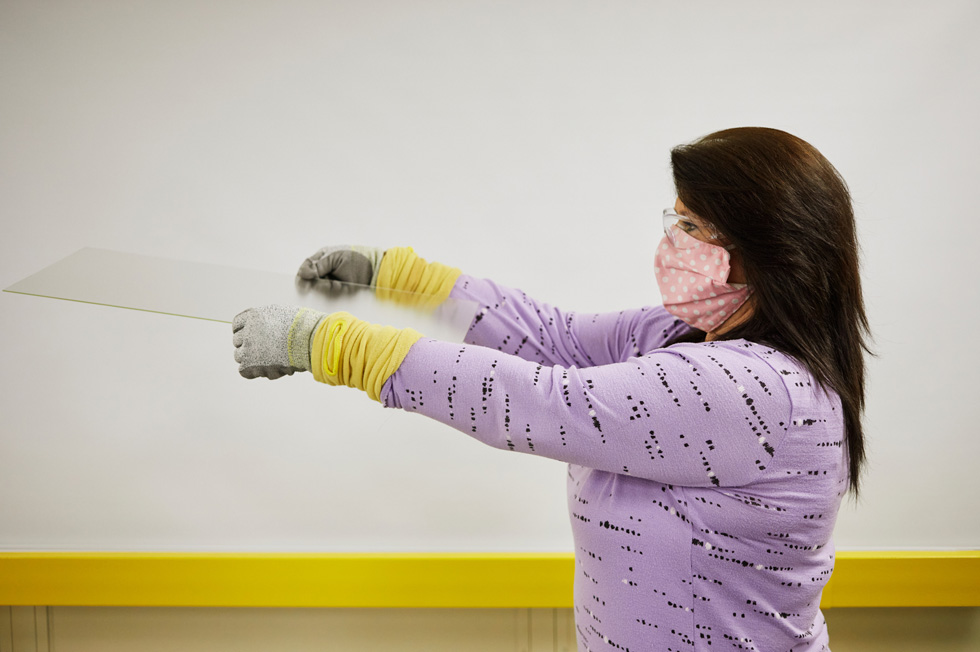Today, Apple is awarding $45 million from its Advanced Manufacturing Fund to Corning Incorporated, a supplier of precision glass for iPhone, Apple Watch, and iPad. The funding will expand Corning's manufacturing capacity in the US and drive research and development into innovative new technologies that support durability and long-lasting product life, building on both Apple and Corning's deep commitment to protecting the environment.
Corning has already received $450 million from Apple's $5 billion Advanced Manufacturing Fund over the last four years. Apple's investment helps support more than 1,000 jobs across Corning's US operations in Kentucky and other facilities. The investment has also helped facilitate research and development into state-of-the-art glass processes, which led to the creation of Ceramic Shield, a new material that is tougher than any smartphone glass.
"Apple and Corning have a long history of working together to accomplish the impossible," said Jeff Williams, Apple's chief operating officer. "From the very first iPhone glass, to the revolutionary Ceramic Shield on the iPhone 12 lineup, our collaboration has changed the landscape of smartphone cover design and durability. Ceramic Shield is a prime example of the technologies that are possible when deep innovation meets the power of American manufacturing. We're so proud to work alongside Corning, whose 170-year-old legacy is a testament to the ingenuity of the US workforce."
With support from Apple's Advanced Manufacturing Fund, experts at both companies worked together to develop a new glass-ceramic, which gets its strength from nano-ceramic crystals, produced in Corning's plant in Harrodsburg, Kentucky, the facility where every generation of iPhone glass has been made.
The new material was enabled by a high-temperature crystallization step which forms nano-crystals within the glass matrix. Those specialized crystals are kept small enough that the material is transparent. The resulting material makes up the revolutionary Ceramic Shield, which Apple used to fashion the new front cover featured on iPhone in the iPhone 12 lineup. Prior to Ceramic Shield, embedded crystals have traditionally affected the material's transparency, a crucial factor for the front cover of iPhone because so many features, including the display, the camera, and sensors for Face ID, need optical clarity to function.
"We are incredibly proud of our collaboration with Apple on Ceramic Shield, made possible in part through the Advanced Manufacturing Fund and the hard work and dedication of hundreds of individuals at Corning and Apple," said Wendell P. Weeks, Corning's chairman and chief executive officer. "We thank Apple for our longstanding product-development partnership and for their continued commitment to supporting the American workforce. The deep investment they've provided for new manufacturing technology in our Harrodsburg, Kentucky, facility is not only fueling life-changing innovation, it's also helping us sustain vital communities where we live and work - a fundamental objective at both of our companies. Together, we're developing a world-class workforce, engaging them in new technologies, and creating opportunities for learning and training."
Corning has well-established training and education programs to create career advancement opportunities for their employees, fostering the kind of specialized workforce that can deliver innovations like Ceramic Shield. These programs include funding through the Corning Incorporated Foundation that helped build a new manufacturing center at local trade school Bluegrass Community Technical College, to support the development of trade positions at the Harrodsburg plant and within the community. The plant also has a state-licensed apprenticeship program for employees to continue their professional development.
Jason Alexander has been working at Corning's Harrodsburg plant as a mechanical maintenance associate for more than 20 years and is a graduate of the company's mechanical maintenance apprenticeship program.
"It means a lot to me - personally and professionally - to be part of a company that invests as much in its employees and its community as it does the latest innovations," said Alexander. "This year has been incredibly challenging for so many, and I am proud to be part of this team, and grateful to have had new opportunities to further develop my skills through the apprenticeship program and be part of so many cutting-edge projects. Thanks to Apple's support and Corning's leadership, the future is bright here in Harrodsburg."
Apple's longstanding relationship with Corning over the past decade is based on the company's unique expertise, strong community presence, and commitment to protecting the environment. Corning is part of Apple's Clean Energy Program, which is designed to advance the use of renewable energy throughout the company's supply chain and is an integral part of Apple's efforts to become carbon neutral by 2030. As part of that commitment, Corning has deployed multiple clean energy solutions, including the recent installation of a solar panel system at its Harrodsburg, Kentucky, facility. The company has procured enough renewable energy to cover all of its Apple manufacturing in the US.
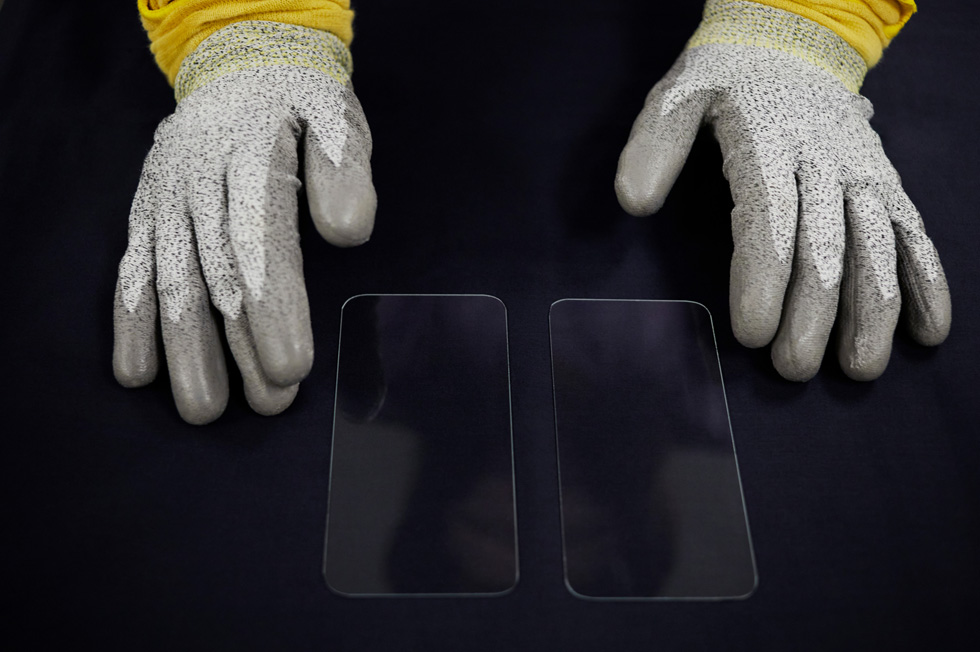
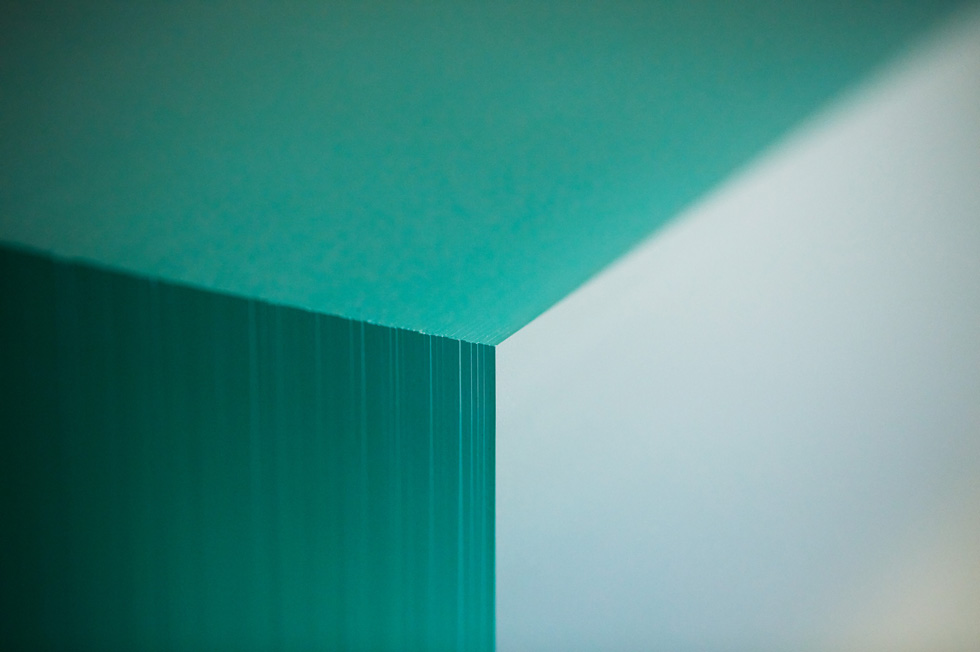
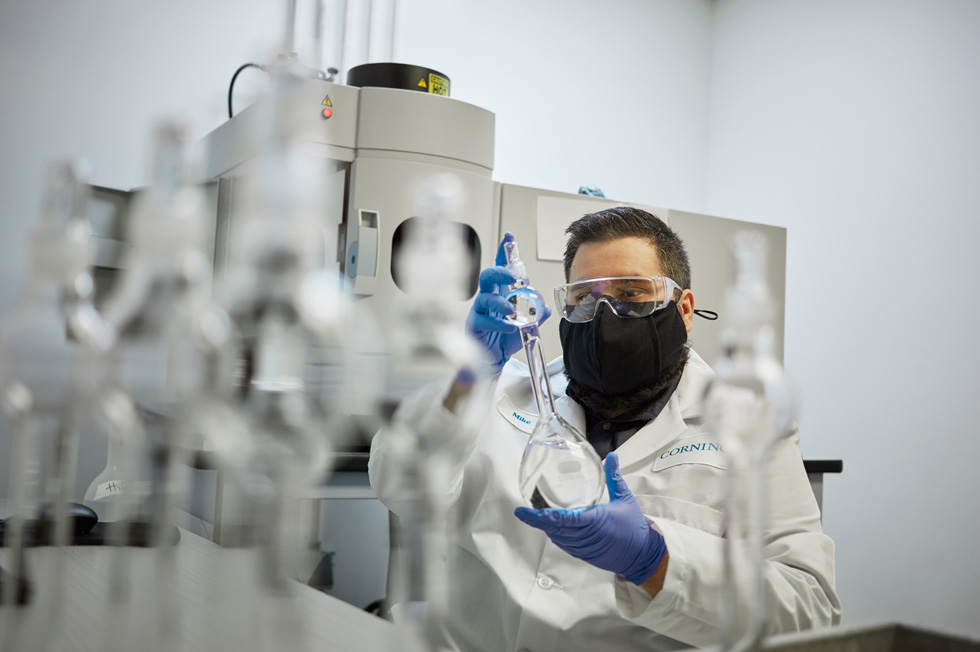
- previous
- next
Apple's Advanced Manufacturing Fund
Apple supports 2.7 million jobs across all 50 states and recently announced plans to add 20,000 jobs across the country while contributing more than $430 billion to the US economy over the next five years. Apple's $430 billion US investments include working with more than 9,000 suppliers and companies large and small across dozens of sectors, including silicon engineering, 5G, and manufacturing. Apple established its Advanced Manufacturing Fund in 2017 to support world-class innovation and high-skilled manufacturing jobs across the US. Awards from the $5 billion fund have led to breakthrough innovations, from supporting the development of advanced laser technology in Texas, to accelerating the supply of Covid-19 sample collection kits for US hospitals, and more.
Visit apple.com/iphone to learn more about the new iPhone 12 lineup.

